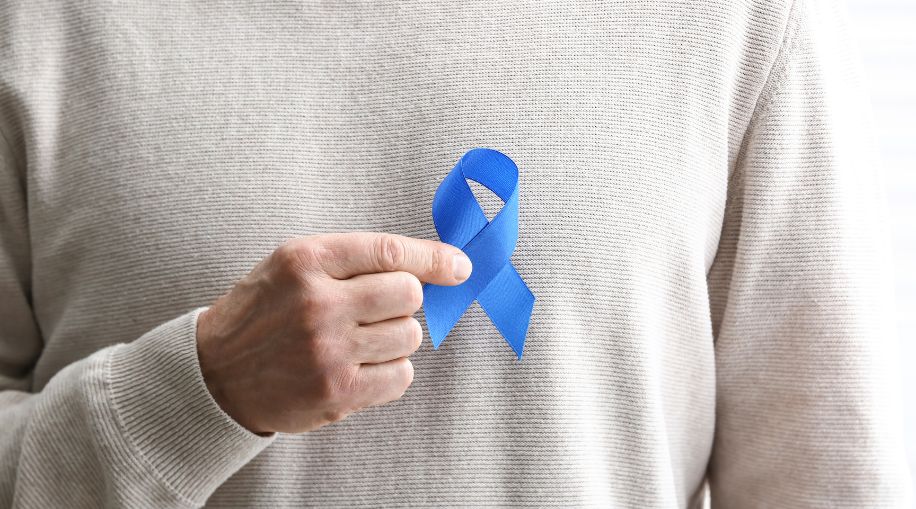Whispers from Within
Silent Signs of Colon Cancer
Colon, or colorectal, cancer is the second most common cause of cancer deaths in the United States. In 2023, researchers estimate that roughly 1.9 million people will be diagnosed with cancer and just over 609,000 total deaths. Of those 609,000 deaths, roughly 52,550 will be from colon cancer, which is close to 9% of all cancer deaths. Since colon cancer can often go undetected until it has reached an advanced stage, it’s so important to know some of the silent signs of this disease so that your doctor can diagnose and treat it at an earlier stage. Below, we’ll outline the silent signs of colon cancer and the steps you can take to decrease your risk of developing this disease.
What Is Colon Cancer?
Colon cancer develops when cells grow out of control in the colon (large intestine) or rectum, leading to malignant tumors. It is estimated that roughly one in 25 women and one in 23 men will develop colon cancer throughout their lifetime, making it the third most common cancer in the U.S. when you exclude skin cancer. In 2023 alone, the American Cancer Society estimates that there will be 106,970 new cases of colon cancer diagnosed. Often, the sooner you can be diagnosed and start treatment, the better your prognosis.
What Are the Stages of Colon Cancer?
There are five different stages of colon cancer that doctors use to identify how far the disease has progressed.
Stage 0
This is the earliest stage in which some abnormal cells are found in the inner lining of the colon or rectum. It may also be called carcinoma in situ or intramucosal carcinoma.
Stage 1
The cancer or tumor has grown through the mucosa and/or lining of the colon. At this stage, it has not spread to any other parts of the body, such as the lymph nodes.
Stage 2
The tumor or cancer has spread to the outer layer of the colon but still has not spread to other tissues or organs in the body.
Stage 3
At this stage, the cancer has spread from the colon to lymph nodes but not to other tissues or organs in the body.
Stage 4
The cancer has spread to other organs throughout the body.
What Are the Silent Signs of Colon Cancer?
In the early stages of colon cancer, you may not experience any obvious symptoms. Though the following symptoms can be signs of less serious conditions, there may be some indications that you should get yourself checked out to rule out colon cancer. If they persist for longer than a couple of weeks, it’s worth booking an appointment with your primary care physician.
An unexplained change in bowel habits–this could include frequent diarrhea or constipation.
- Bloody stool or rectal bleeding.
- Unexplained weight loss.
- Abdominal pain–can include cramps, gas or pain.
- Feeling like the colon hasn’t emptied after a bowel movement.
- Excessive tiredness or weakness.
How to Lower Your Risk of Colon Cancer
While there is no way to eliminate the risk of developing colon cancer, some habits can help to reduce your risk. Incorporate the following into your healthcare plan to support your colon health.
1. Regular Colorectal Screenings
While it’s not the sexiest tip, regular screenings are the best tool to help prevent colon cancer. It takes roughly 10 to 15 years for abnormal polyps to develop into full-blown cancer, so regular screening can help identify and remove these polyps before they turn into cancer. The American Cancer Society suggests getting screened regularly after age 45. Your doctor can help you decide which screening tests make the most sense for you.
2. Maintain a Healthy Weight
Another risk factor for colon cancer is being overweight or obese, so maintaining a healthy weight through physical activity and a healthy diet can help reduce your risk of developing this disease.
3. Eat a Colon-Healthy Diet
Some research has found that consuming a diet rich in plant-based fiber is associated with a lower risk of colon cancer. Enjoy fruits, veggies, whole grains and legumes. Not only are they rich in fiber, but they also contain loads of vitamins, minerals and antioxidants that can promote whole-body health.
If you have a high risk of colon cancer due to genetics or family history, then you may want to limit or eliminate your intake of red and processed meats since they have been correlated with a higher incidence of colon cancer.
4. Enjoy Physical Activity
There’s a correlation between moderate to vigorous activity and reduced risk of colon cancer and polyps. Incorporating regular activity into your life is a great way to stay healthy and lower your risk. Try enjoying anything from daily walks, bike rides, team sports, swimming, or any other activity that gets you up and your heart rate pumping!
5. Reduce Alcohol Consumption
This one won’t make me any friends, but unfortunately, research has found a correlation between alcohol intake and colon cancer. The American Cancer Society recommends limiting your alcohol intake to one drink a day for women and two drinks a day for men but states that abstaining may further lower your risk of colon cancer.
The Silent Threats
While there are no guarantees when it comes to developing colon cancer, there are lots of small changes you can make in your daily life to help stack the deck in your favor and reduce your risk. The earlier your doctor can diagnose you, the better your prognosis, so regular checkups should make up the foundation of your care.
Read on to learn about the 5 warning signs of prostate cancer.
Article Resources
- Cancer Stat Facts: Common Cancer Sites (National Cancer Institute)
- Cancer Facts & Figures 2022 (American Cancer Society)
- Key Statistics for Colorectal Cancer (American Cancer Society)
- Colorectal Cancer Stages (American Cancer Society)
- Colon Cancer Overview (Mayo Clinic)
- Can Colorectal Cancer Be Prevented? (American Cancer Society)
- Alcohol Use and Cancer (American Cancer Society)

